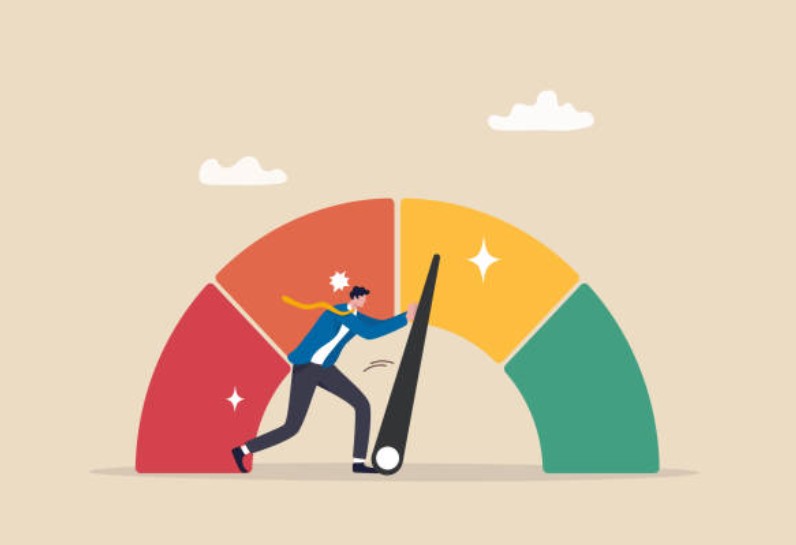Managing debt is no longer just about making monthly payments—it’s about financial survival. As the cost of living continues to climb in the UK and borrowing becomes more common, more people are asking a critical question:
“Does Debt Consolidation Hurt Your Credit?”
If you’re in the UK and juggling several loans, credit cards, or overdrafts, you’ve likely come across debt consolidation as a possible solution. But does it really help, or could it damage your credit profile in the long run? In this blog, we’ll unpack everything from the foundations of debt consolidation to its full impact on your credit score—both the good and the not-so-good.
What Exactly Is Debt Consolidation, and How Does It Work?
A Simple Idea for Complex Debt
Debt consolidation is the process of combining multiple debts into a single, manageable monthly payment. The primary purpose is to make your debt easier to handle, especially if you’re struggling to keep up with due dates and various interest rates.
Common Types of Debt Consolidation in the UK:
- Debt Consolidation Loan – A personal loan taken out to pay off other debts.
- Balance Transfer Credit Card – Used to move debts from multiple credit cards onto a single card with a 0% introductory interest rate.
- Debt Management Plan (DMP) – An informal agreement with your creditors managed by a third-party organisation (often used by people with very poor credit).
- Secured Loans – In some cases, people use homeowner loans to consolidate debt (though this can be risky).
In the UK, debt consolidation is often seen as a strategic way to regain control, especially for those who are not yet in severe financial distress but want to avoid it.
Does Debt Consolidation Hurt Your Credit Score in the UK?

The Initial Dip—Is It Inevitable?
Yes, consolidating your debt can cause a temporary drop in your credit score. But this is usually part of the process and not necessarily a sign of financial damage.
Why Your Score May Dip Initially?
- Hard Credit Search – Any application for credit triggers a hard inquiry, which can lower your score by a few points.
- New Account – Adding a new credit line may reduce your average account age, another factor in your credit score.
- Higher Credit Use – Initially, consolidating may appear as a spike in borrowing, depending on how your debts are recorded.
This dip, however, is usually short-lived, and scores often bounce back—especially if the new debt is handled responsibly.
Can Debt Consolidation Improve Your Credit in the Long Run?

From Debt Stress to Credit Success
Here’s where the picture brightens. If used wisely, debt consolidation can actually help rebuild your credit score over time. It gives you one payment to focus on rather than juggling multiple, which can make budgeting much easier and payment consistency more likely.
How Can It Help Improve Your Credit Score?
- Payment History – On-time payments build your credit rating fast.
- Lower Utilisation – Keeping old accounts open can reduce your overall utilisation ratio (less debt compared to your available credit).
- Fewer Missed Payments – With fewer due dates, there’s a smaller chance of forgetting one and incurring a late fee or default.
A smart borrower can turn debt consolidation into a credit-building opportunity within 6–12 months.
When Could Debt Consolidation Hurt More Than It Helps?
The Mistakes That Cost You Credit Points
Debt consolidation isn’t a guaranteed fix. In fact, if not done carefully, it can create new problems. One of the biggest misconceptions is that consolidating wipes out your debt. It doesn’t—it just rearranges it.
Scenarios That Could Harm Your Credit:
- Missing payments on your consolidation loan – Damages your credit more because it’s seen as failure on a larger scale.
- Closing old accounts – You may lose your credit history length and available credit, both of which are important to credit scoring.
- Taking on more debt after consolidating – It’s a common trap: seeing one cleared credit card and using it again.
Debt consolidation is not debt elimination—it’s a tool, and like any tool, it works best when handled properly.
TABLE: How Debt Consolidation Affects Your UK Credit Report?
Here’s a snapshot of what happens to your credit profile when you consolidate your debt:
| Credit Factor | What Happens After Consolidation | Impact Level |
| Hard Credit Check | Temporarily lowers score by 5–10 points | Mild (Short-Term) |
| New Credit Line | Reduces the average age of accounts | Moderate (Short-Term) |
| Payment Consistency | Improves score if repayments are on time | Strong (Long-Term) |
| Credit Utilisation Ratio | May drop if old accounts remain open | Positive (Mid-Term) |
| Credit Mix | Improves the diversity of credit types | Slightly Positive |
| Old Accounts Closed | Reduces history length, affecting credit score | Negative (If closed) |
How to Do It Right? Smart Steps to Consolidate Debt Safely

Make It Work in Your Favour
If you want to consolidate without harming your credit, here’s a simple blueprint to follow:
- Use a soft credit check tool when comparing lenders.
- Keep your old credit accounts open (unless they have high annual fees).
- Stick to your new repayment schedule religiously.
- Avoid taking on new credit until your consolidation loan is nearly paid off.
- Seek advice from UK-based debt charities like StepChange or National Debtline if unsure.
Pros & Cons of Debt Consolidation: UK Snapshot
| Pros | Cons |
| Simplifies multiple debts into one payment | May lower credit score temporarily |
| Potential to save money on interest | Requires discipline and budgeting |
| Helps improve payment history | Not suitable for every financial situation |
| Reduces the stress of juggling payments | Taking on more credit post-consolidation is risky |
| May improve credit score long-term | Fees or penalties may apply to certain loans/cards |
Final Thoughts: Does Debt Consolidation Hurt Your Credit?
So, does debt consolidation hurt your credit? The honest answer is: It might—but only in the short term.
If used wisely, it can help you manage finances better, reduce stress, and even give your credit score a healthy boost over time.
For UK residents navigating this decision, always review your credit file, weigh the risks, and consider speaking to a certified UK debt advisor before making a move.
Remember—debt consolidation is not the destination. It’s a tool, a strategy, a step in the right direction towards long-term financial health.
Frequently Asked Questions (FAQs)
Will my credit score recover after debt consolidation?
Yes, usually within 6 to 12 months, so long as you make on-time payments and don’t add more debt to the pile.
What’s the best way to consolidate debt in the UK?
For good credit scores, 0% balance transfer cards work well. For mixed or poor credit, personal loans or debt management plans (via charities) are common choices.
Can I consolidate debt with bad credit?
Yes, but your interest rate may be higher. Look for lenders that specialise in poor-credit loans or consider talking to a financial advisor.
Do lenders in the UK view consolidation negatively?
Not necessarily. Lenders often see it as a responsible step, as long as you don’t miss payments afterward.






